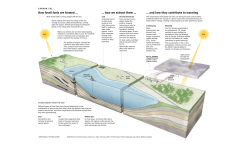
Energy Union and its Impact on European Citizens_EMI Briefing
Energy Union and its Impact on European Citizens European Movement International’s briefing with the Vice-President for the Energy Union Maroš Šefčovič 18 March 2015 5:30 p.m. Representation of the State of North Rhine-Westphalia to the EU Rue Montoyer 47, 1000 Brussels, Belgium 5:15 p.m. Registration 5:30 p.m. Opening Welcoming words by Jo Leinen MEP, President of the European Movement International and Rainer Steffens, Director of the Representation of the State of North Rhine-Westphalia to the EU 5:40 p.m. Keynote speech Energy Union and its Impact on European Citizens Opening remarks by Maroš Šefčovič, European Commission’s Vice-President for the Energy Union 5:50 p.m. Q&A Discussion Exchange between Civil Society Representatives and Vice-President Maroš Šefčovič Closing remarks by Robin Welling, ESTIF President, on behalf of the Renewable Heating and Cooling Industry (AEBIOM, EGEC, ESTIF) 6:30 p.m. Closing 6:30 p.m. Networking Reception Kindly supported by: Energy Union and its Impact on European Citizens European Movement International’s Briefing with the Vice-President for the Energy Union Maroš Šefčovič “We see it as the most ambitious energy project since the coal and steel community. We want to start a process to integrate 28 energy markets into one Energy Union.” Maroš Šefčovič On 25 February 2015 the European Commission officially adopted the Energy Union Strategy, which aims to complete the European-wide single energy market, reducing its uneasy reliance on Russian supplies and cutting a massive annual import bill of some 400 billion euros. The plans for the Energy Union include not only completing the single market, but also increasing energy security, boosting efficiency, reducing the use of fossil fuels and increasing research on new energy sources. The project launch coincided with the Communication on the EU position for the climate negotiations in Paris later this year, as well as recommendations on how to bring the intra-EU electricity interconnection level to 10% by 2020, which together cover policy areas such as climate, transport, industry, research, the digital economy and agriculture. Enhancing the ambitions of the European Union via a horizontal energy project harks back to the establishment of the European Coal and Steel Community over 60 years ago. The idea for an Energy Union indeed has a great deal of support and potential and could serve as a grand Marshall Plan for the EU, which could unlock investment across Europe, bring lower emissions and greater efficiency. However, these plans face serious obstacles, both practical and political. First of all, the Commission expects all Member States to speak with a single voice on energy policy, an idea that has already met significant resistance, as indicated by the case of Hungary. The Commission document stated in reference to Russia: “The political challenges over the last months have shown that diversification of energy sources, suppliers, and routes is important for ensuring secure and resilient energy supplies. Energy policy is often used as a foreign policy tool, in particular in major energy-producing and transit countries. This reality has to be taken into account.” The diversification of supply seems crucial for the future of the European continent. Thus, the question arises, what would be the key to choosing new partners? Should we focus on the construction of a new Southern Gas Corridor and look for partnerships over the Mediterranean, despite previously failed attempts? What will be the role of energy savings and renewable energy in the framework? Environmental organisations raise concerns regarding the limited climate focus of the suggested proposals. Their doubts address the lack of substance for a real fight against climate change; as they feel the current design of the Energy Union is rather about gas security and ensuring a solid response to the political games played by Russia. Whilst the Energy Union itself is perceived as a decent vision as such, big blind spots appear. The European Commission is explicit about moving away from fossil fuels, and re-organising energy markets towards real efficiency and renewable energy sources, Kindly supported by: but when planning the strategic energy security, the focus is still on fossil fuels. This inconsistency leads to serious doubts amongst civil society actors. The initiatives undertaken by the European Commission in terms of transparency and engaging in citizen dialogues - concerning the ambitious Energy Union and “road to Paris” negotiations, as indicated by the interactive Twitter #EnergyUnionChat right after the project’s launch, or willingness to appear at civil society fora such as the EMI Briefing, are truly welcome. Yet, the intraEuropean obstacles and civic doubts need to be urgently addressed, to ensure the solidarity and support the Commission is asking for. EU energy ministers are to discuss the Commission’s plan in Brussels on 5 March and at an informal gathering hosted by the Latvian presidency on 14-16 April, before formally taking a position at the Luxembourg Energy Council on 11-12 June. Civil society organisations wish to keep on being actively engaged in the dialogue to make sure that all interests are secured and included in the final deal. In case of any additional enquiries, please contact Ms. Joanna Nahorska, Events and Project Officer: joanna.nahorska@europeanmovement.eu / tel: (+32) 02/508.30.86 Kindly supported by:
© Copyright 2025










